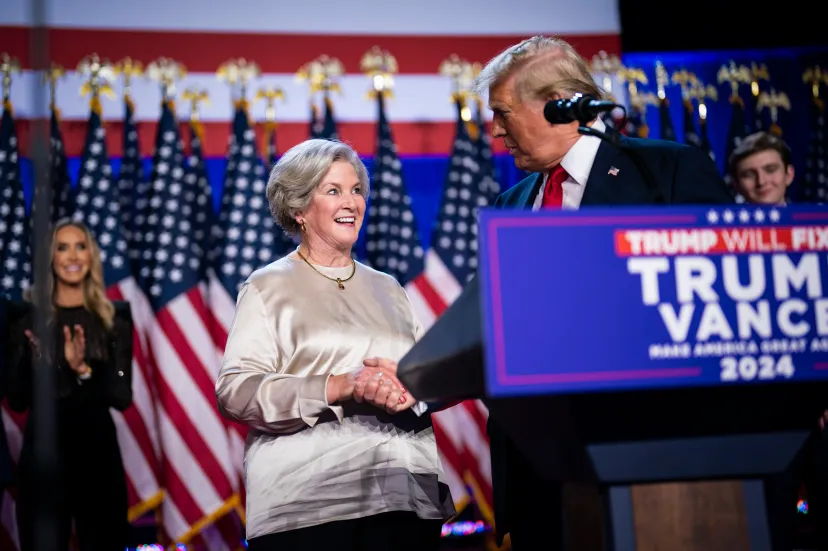Trump Sweeps Swing States, Begins Making Staff Appointments

Image courtesy of TIME
By Patrick D. Lewis
Donald Trump’s victory in the presidential election became even more commanding on Sunday, November 10 when networks finally called Arizona, the last state to finish counting its votes, for the Republican candidate. With all the votes now counted, Trump’s victory is complete at 312 votes in the electoral college to Vice President Kamala Harris’ 226.
Trump’s party also won control of the U.S. Senate, 52 seats to the Democrats’ 46, with two more seats remaining uncalled.
Control of the House of Representatives remains unclear, but the GOP is widely expected to retain it, giving the Republicans complete control over the government come January.
While Trump has a track record of providing some idea of what he might do during his second stint as President, many people wonder how far he will go on issues like the war in Ukraine, mass deportations of illegal immigrants, and high tariffs. The people he appoints to cabinet positions and other key posts will likely affect his decisions; Trump is well-known for acting on advice he gets, whether that be from government officials, celebrities he is friends with, or members of his family.
Trump’s first announcement regarding his staff was his selection of Susie Wiles as his White House Chief of Staff. Wiles, who currently serves as Trump’s co-campaign manager will play a major role in who works in the West Wing and who has unfettered access to the president, giving her a measure of control over who might influence her boss. She will be the first woman to hold the position.
Trump offered the post of U.S. Ambassador to the United Nations to Rep. Elise Stefanik (R, NY-21). Stefanik will resign from Congress, leaving her position as conference chair, the fourth-highest Republican in the House, open.
Trump also announced that Tom Homan, former Acting Director of U.S. Immigration and Customs Enforcement (ICE), will serve in his second administration as a “border czar,” responsible for coordinating Trump’s planned efforts to increase border security and deport larger numbers of illegal immigrants.
Then, on Monday, news broke that Trump had tapped Senator Marco Rubio (R-FL) as his secretary of state nominee. The choice had not been publicly confirmed as of this writing. Rubio has experience sitting on foreign relations and intelligence-related committees in Congress and holds many views on international relations similar to those of Trump and Vice President-elect J.D. Vance.
Trump announced on November 12 of this year several more appointments, including Fox News host Peter Hegseth, a U.S. Army veteran, as secretary of defense, a move that raised eyebrows across Washington and drew mixed reactions from GOP senators, whose approval will be needed to confirm Trump’s cabinet picks. Trump also announced that Elon Musk and former presidential contender Vivek Ramaswamy will head the new “Department of Government Efficiency,” referred to by Musk as “DOGE,” a reference to a “meme stock” cryptocurrency. The new entity, which hasn’t been fully worked out yet, will look to cut federal spending.
So far, Trump has not brought back any members of his first administration. The Wall Street Journal reported that Mike Pompeo, who served as secretary of state under Trump, was turned down as defense secretary for the second Trump administration on the advice of Donald Trump Jr. and Tucker Carlson. If true, the report might provide an even better indication of who will sway the next president once he is in office.
Similarly, Trump announced that Nikki Haley, who opposed him in the primaries but later endorsed him, would not be offered a position in his administration.






